How To Treat Dark Spots Like A Derm
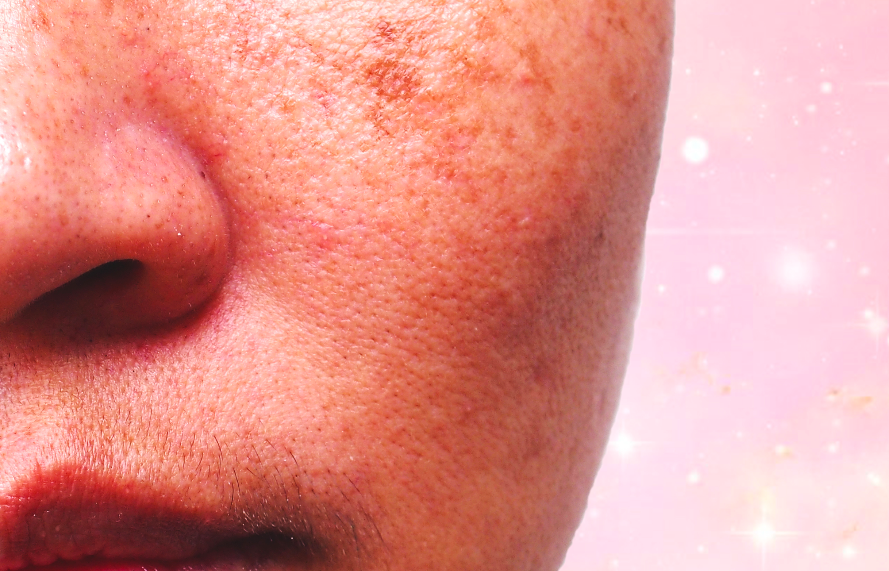
One skin concern that we’re constantly asked about is dark spots, or what some people refer to as sunspots. Dark spots are considered dark patches of uneven tone most commonly found on your neck, shoulders, and face, and are usually reddish, brown, or grey in appearance. They’re actually one of the most common skin concerns among women in their 20s – so try not to worry about them too much because pretty much everyone has them. However, that doesn’t mean you shouldn’t know how to treat them (and prevent more from cropping up) if you want to. So, we spoke to L.A-based dermatologist and author of Feed Your Face, Dr. Jessica Wu, for the 411 on this common skin concern.
What Causes Dark Spots?
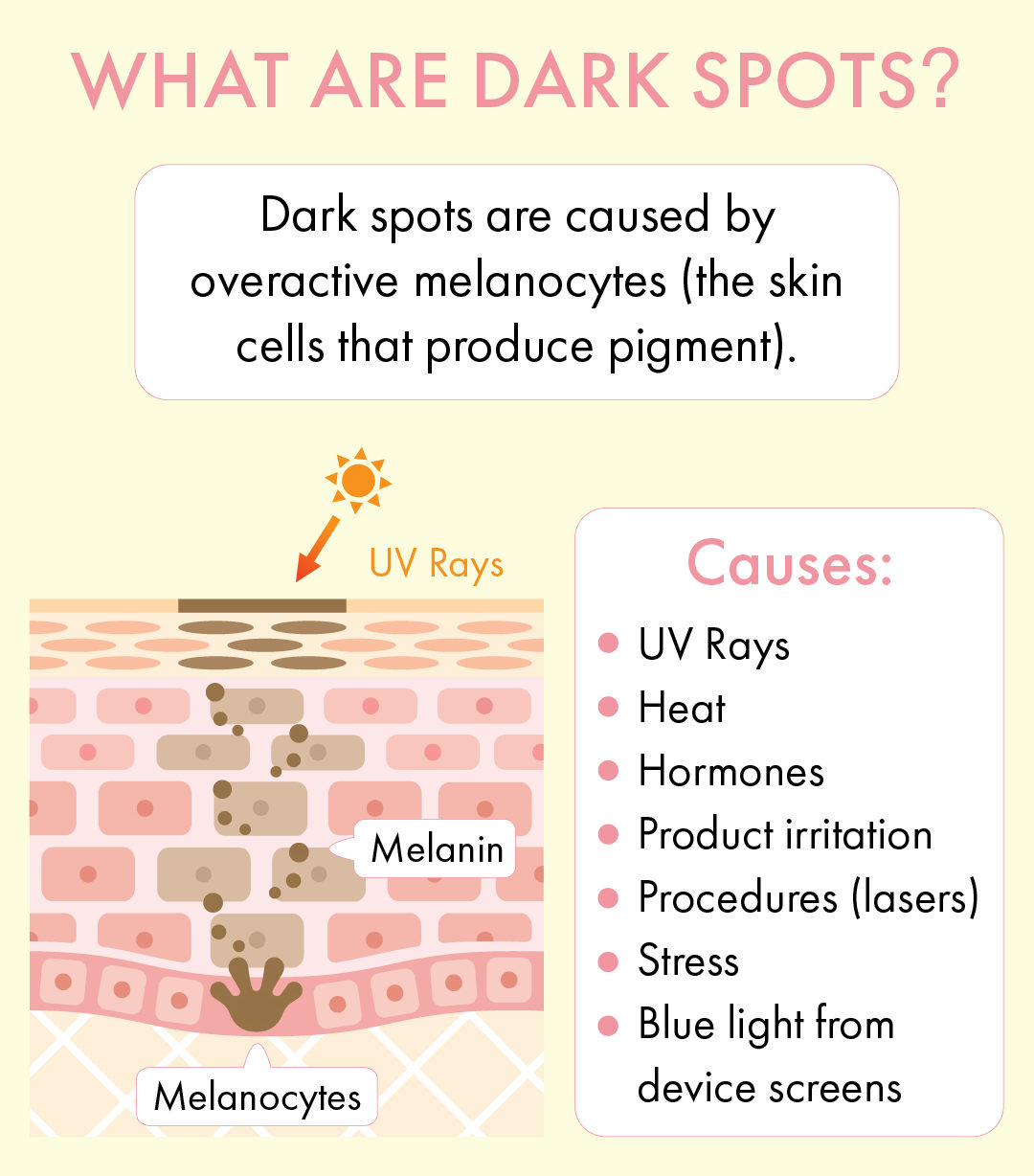
Dr. Wu explained that “Dark spots are caused by overactive melanocytes (the skin cells that produce pigment). This may be triggered by UV rays from the sun, hormones, heat, or excess irritation from products or procedures (such as laser). Recently, studies have shown that stress, and blue light from device screens, can also cause uneven pigmentation.” Yup, even your Netflix addiction could be harming your skin.
 Source: Josep Curto/Shutterstock
Source: Josep Curto/Shutterstock
The easiest way to prevent dark spots from forming is to protect your skin from damaging UVA and UVB rays. This is why Dr. Wu insists that it’s important to “Read labels, so you know you’re choosing a good sunscreen. Look for SPF 30 or higher, with UVA-blocking ingredients such as zinc oxide. US and European brands will be labeled ‘broad spectrum’ while many Asian brands (such as Shiseido and Neogen) will have a PA rating that indicates UVA protection; look for PA+++ or higher.” We love the Thank You Farmer Sun Project Water Sun Cream SPF50+ PA+++, $24; it offers amazing protection and is super lightweight, so it doesn’t leave your skin feeling greasy.
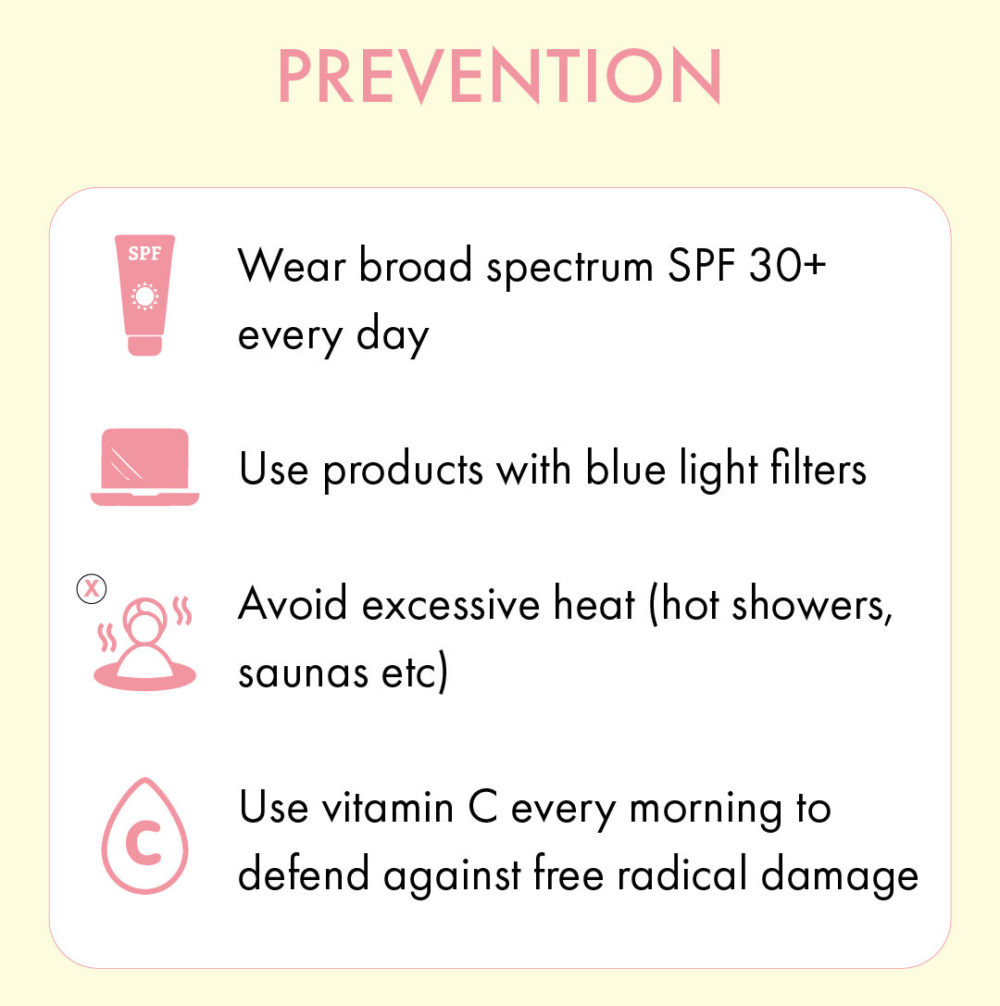
As heat is another major contributor to dark spots, Dr. Wu explains, “I advise my patients to avoid heat if possible. Avoid hot showers and keep your face cool with a cold, damp towel if you go into a sauna or while exercising.” Finally, she recommends “Getting a blue light filter for your devices. I turn on the blue light filter on my Samsung phone to protect my eyes and my skin.”
How To Treat Dark Spots
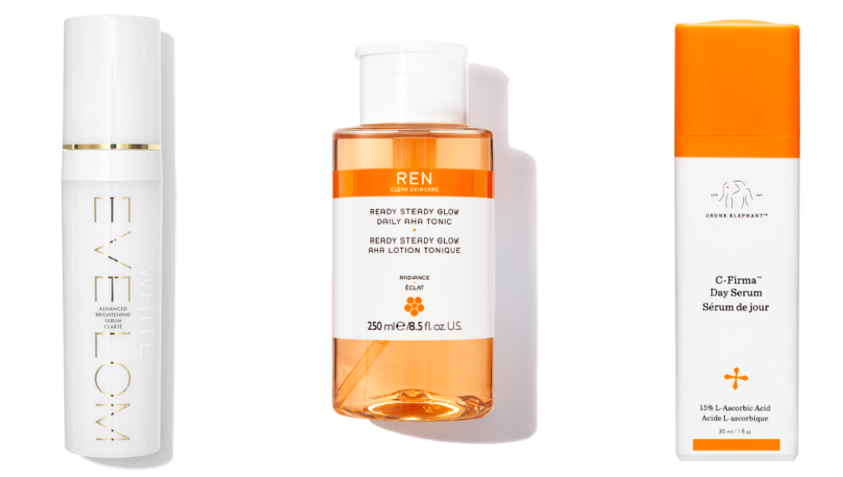 Source: Eve Lom, REN Skincare, Drunk Elephant
Source: Eve Lom, REN Skincare, Drunk Elephant
Think FAST: Dr. Wu states that “If your spots are new, there’s a good chance they may respond to gentle skin-brightening treatments containing ingredients such as arbutin and niacinamide (a type of vitamin B). You can find niacinamide in Olay Regenerist Luminous Anti-Ageing Skin Tone Serum, $18, and the Eve Lom White Advanced Brightening Serum, $155.” We’re also obsessed with Drunk Elephant’s C-Firma Day Serum, $80, which contains antioxidant-rich, brightening agent vitamin C.
Existing dark spots: “If your spots have been there more than six months, try proven spot-lightening ingredients such as vitamin C and alpha-hydroxy acids.” She recommends the “Ren Skincare Ready Steady Glow Daily AHA Tonic, $32, which contains lactic acid and azelaic acid precursors (normally available only by prescription).” Dr. Wu also recommends going to your dermatologist and asking for “tranexamic acid, found in Lytera 2.0, $155,” which is only available via prescription.
Stubborn AF dark spots: Dr. Wu explains that “For my patients with stubborn spots, I may prescribe a short course of intermittent hydroquinone and a prescription retinoid, either alone or as a pre-procedure treatment.” However, she adds that “Those with fair skin respond best to laser, while I prefer using chemical peels on my patients with deeper skin tones. I find that I have more precise control with peels vs. laser, and peels don’t create excess heat that may lead to post-procedure pigmentation.”
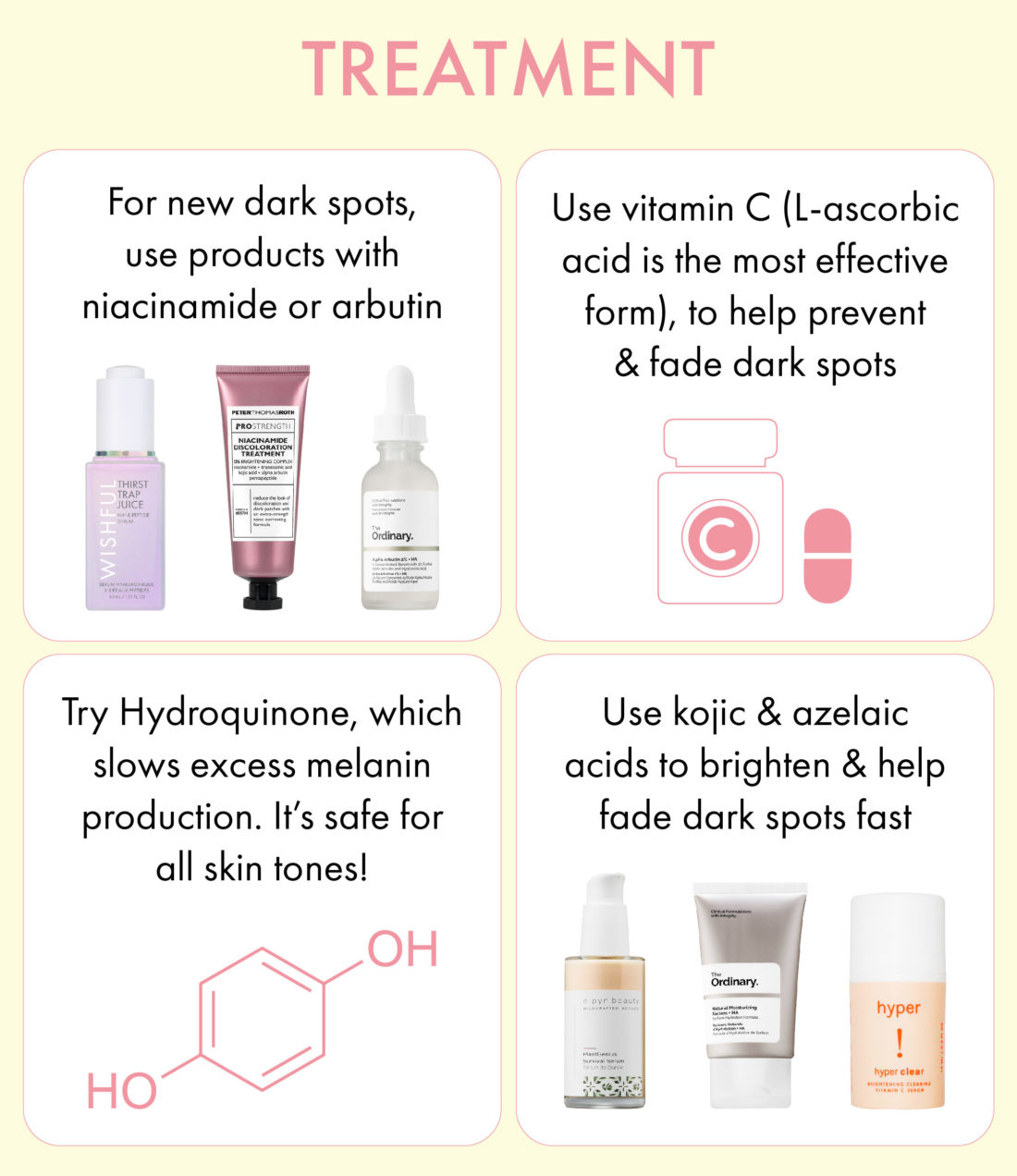
Let us know what skin concern you’d like us to write about next in the comments below.




















Leave a comment